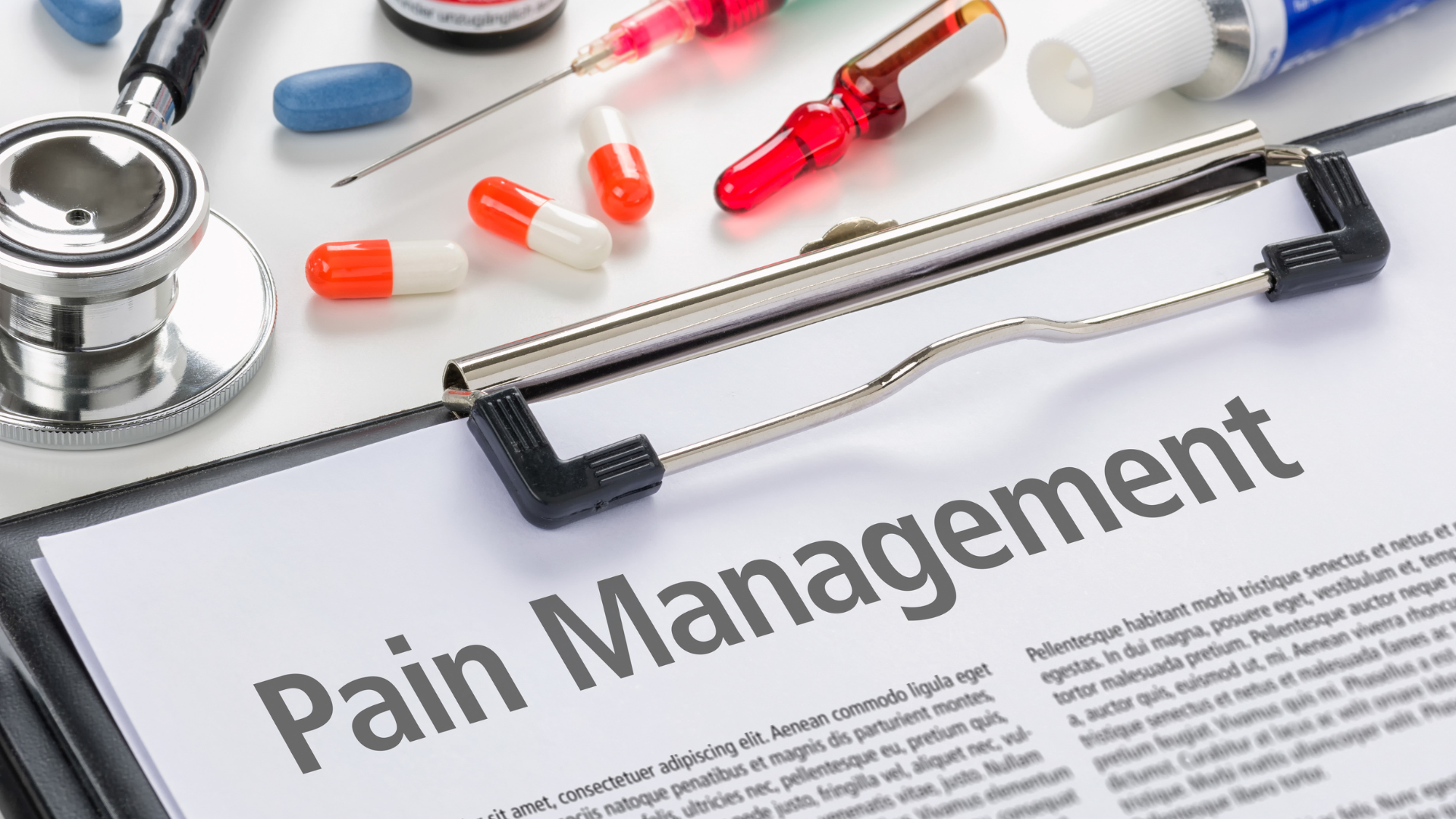
People with chronic pain can suffer quite a lot throughout their life. They either live daily with pain or discomfort, or they can have very long periods of pain that impact their daily life. They have to adjust in multiple ways so that they are able to navigate through life as effectively as possible.
When chronic pain becomes too much for a person to handle, they may find that they feel at a loss on how to manage basic daily tasks such as showering, eating, or working. This can cause them to mentally feel drained and end up developing mental health issues such as anxiety, stress, and depression.
Chronic pain is something that should be spoken about openly to help those who suffer feel like they are not alone. Whether you are a chronic pain sufferer or you know someone battling these issues, it is essential to know what to do at this time, and what avenues may be best to go down.

What Types of Chronic Pain Are There?
People with chronic pain can experience different types. That doesn’t mean that one is worse than the other as we all experience pain in a variety of ways that can change with age and resilience. Some are able to work with their pain as time goes on, whilst others feel weaker. As well as that, you should know the source and severity of the pain you’re experiencing. For example, you may suffer from Chiari malformations (if interested, know more about types of Chiari Malformations here), displaced fractures, or muscle lacerations if you experience frequent neck and limb pain. In such a case, you may need to visit a medical professional for the necessary assistance
Some people suffer from acute pain which means the pain will come on strongly and quickly but only lasts a short time. However, the person may have this happen consistently just not continuously like chronic pain which is more persistent ongoing pain and will typically last longer than 12 weeks despite being treated.
Day-to-day life is affected by this, and they may find it hard to fall asleep even with pain management techniques through a pain specialist such as medication and physical therapy, to name a few.
Acute Pain Management
Some people may confuse chronic pain with acute pain which is understandable if they keep getting this severe pain a lot, however, as mentioned before there are differences. This is why it is important to speak to a doctor about the pain being experienced and get a proper diagnosis.
For chronic pain, doctors may send patients for medical treatment, put them on strong pain medication like opioids to deal with the pain during those bad moments, or they could look at other effective treatments with the assistance of a consultant that specialises in different types of pain management. For acute pain, strong painkillers are generally not advised, which is why a diagnosis is important. That kind of pain can be managed by procuring a qp of weed and using it in small doses on a regular basis. In essence, acute symptoms are quite manageable whereas chronic ones require proper medical treatment.

Methods to Ease the Pain
Suffering from pain, even acutely, can sometimes take over someone’s life. Methods to help calm this down will need to be introduced to the patient gradually to see how they respond. The same methods used for chronic pain treatment can also be used here, so the person experiencing this can find the best pain relief. These methods include –
- Taking prescribed pain meds
- Using alternative therapies (CBD, acupuncture, hypnosis)
- Physical therapy sessions
- Using transcutaneous electrical nerve stimulation (tens machine)
- Stress management
Whilst this may be beneficial for those who are acutely suffering from pain, people who experience chronic pain may find this does not do exactly what they need and discover that when chronic pain becomes too much they are unable to get relief from these pain management techniques.
What Can Be Done For Chronic Pain Patients
Chronic pain can be classed as an invisible illness. People who suffer from Endometriosis, Adenomyosis, Fibromyalgia, Chronic Fatigue Syndrome, Lupus, and so on, do not have apparent indicators to the naked eye, there is no physical showing of their illness like a broken arm or a rash.
This can be difficult for chronic pain sufferers to deal with as explaining to people why they can’t go somewhere or do something is hard for them to put into words as it’s not like they can show the other person exactly what they are going through. They are in so much pain in day-to-day life that they don’t know how else they can explain it.
High impact chronic pain can affect their job, social life, relationships, friendships, and their own view of themselves which can be a blow to their mental health. Here are some helpful tips that can help chronic pain patients get through these tough times.
Whether they can treat chronic pain completely or not, it is important for them to know what chronic pain management is out there. The patient suffering from chronic pain due to an illness may require professional care and supervision, especially in the case of senior citizens since they might require a nurse or other medical professional to oversee them 24×7.
In cases where an elderly citizen requires constant supervision, it could be beneficial to look for a senior community in New Jersey where they can get all the necessary aid. Some assisted living facilities may even have special services such as on-site physical, occupational, and speech therapy, which can be a great help for pain management in patients.

Visiting a Support Group
This may not be for everyone, but support groups can be highly beneficial to those who want to speak to others like themselves so they can get support from people who are going through it. They can connect with those who are in the same boat.
To develop chronic pain is like stepping outside of yourself and what you know. Knowing that others are feeling that too can make it easier, as chronic pain makes many people feel isolated and wish for pain relief.
Self Care (Managing Your Pain)
More than likely, those that suffer from chronic pain will have gone back and forth to their doctor’s office to figure out why they are feeling this way and what can be done. After a while, this can be hard to face, especially if they are not seeing any progress and are being put on different types of pain medication.
Because of this, they may take pain care into their own hands to see if they are able to make any headway. This could be in the form of changing what they eat, taking supplements, using alternative pain meds (as stated before CBD, acupuncture, etc.), and finding specialists that practice in your field of pain. A few of these pain management solutions might work, like using cannabis products such as the ones available on websites similar to https://leiffa.com/2022/01/01/beginners-guide-to-solventless/ as well as physical therapies and massages. However, people suffering from chronic pain can first talk to a doctor about their desired approach toward pain relief so as to avoid side effects and other complications.
Keep Consistent
When someone decides to self manage ongoing pain, it can be filled with ups and downs, but so can going through a family doctor and hoping they will be ‘fixed’. Medical care can only go so far, that is why someone advocating for themselves and taking primary care of their overall health is incredibly important.

Medication
Whilst medication can be a good way at helping someone who is suffering, there is still an issue of how that drug will impact the person and what they get from it.
For some people this type of medicine is essential, they can’t get through their day without it and it has given them some lease on life, like muscle relaxers, however, others may start to use it as a crutch and take it even when they are not that bad, as the feeling they can get can be euphoric.
Drug Addiction
Someone becoming a drug addict from taking pain meds is a very real possibility and one that will need addressing. Taking too much of their prescription can cause them to go into a downward spiral and have them rely on it so much that their quality of life diminishes because of what they taking.
Reducing pain was their goal, and now they are in a vicious cycle of taking the drug just to feel any sense of relief.

Indicators of Drug Abuse
If you suspect someone may be abusing their prescription medication, then you will need to get them help. You can try approaching them gently first, or you can discuss this with their family members. It is important to let them know that they are supported and you want to help them.
Symptoms of abusing drugs are as follows –
- Impaired coordination
- Slurred speech
- Sleep issues
- Nausea, vomiting, headaches
These are just a few as there are other psychological actions to look out for too, with irritability being a big one, but that could be misinterpreted as them having a bad pain day, as pain affects all aspects of life.

Visiting The Doctor
Whilst some people may feel fed up with going to the doctor all the time, it is important that they keep trying especially if the pain becomes too much or new symptoms start to emerge.
Some daily activities that didn’t hurt before could make the pain worse with their pain tolerance getting lower. Chronic pain becomes part of someone’s life whether they want it to or not, but the level it is can either annoy them or destroy them.
Keep a Log
Patients should keep going back to their doctor if something is wrong, they need to write down any other symptoms that come up, and tell them if there has been an increase in their pain level.
They must ask for referrals, a printout of their medical record, hand over any notes about a change to their daily physical health, and tell these professionals that they won’t settle for less.
Medical Gaslighting
Medical gaslighting has been known to happen with doctors telling patients that their pain is in their head or it is an indicator of something else. This should not be stood for. Patients know their own bodies, they know their pain signals, what a flare up is for them, and what they can cope with.

Mental Health Support
The quality of life of someone with chronic pain can vary. The tension they feel and the way they navigate through life will differ from others. This can cause them to feel mentally drained and detached, which may pose as high anxiety or depression, sometimes both, that is why supporting their mental as well as physical health is crucial.
Seeing a therapist and talking through their issues can get them on the right track to accepting what they are going through and might be able to reduce that anxiety-induced muscle tension that they can feel daily (which won’t be helping their pain response).
When a person experiences chronic pain, it will not only have an effect on their nervous system but their brain. It would be wise for a patient to take this into account and see their brain as something that needs to be treated too.
Research shows that people who live with ongoing pain will have a higher risk of developing these types of mental health issues. This is why support is needed for the body and mind.

Conclusion
Going through something like chronic pain is not easy. It can cause a lot of physical and emotional issues that may be hard to resolve. It is never okay for someone to feel like they can’t reach out for help, but with invisible illnesses, people can feel afraid to seek out the help they need or push for more answers.
Hopefully, people can get support from this and be able to find what they are looking for. Sometimes people develop chronic pain for no obvious reason which can be devastating. Surrounding themselves with the right support will help them march on and optimistically get them to sleep peacefully at night.
